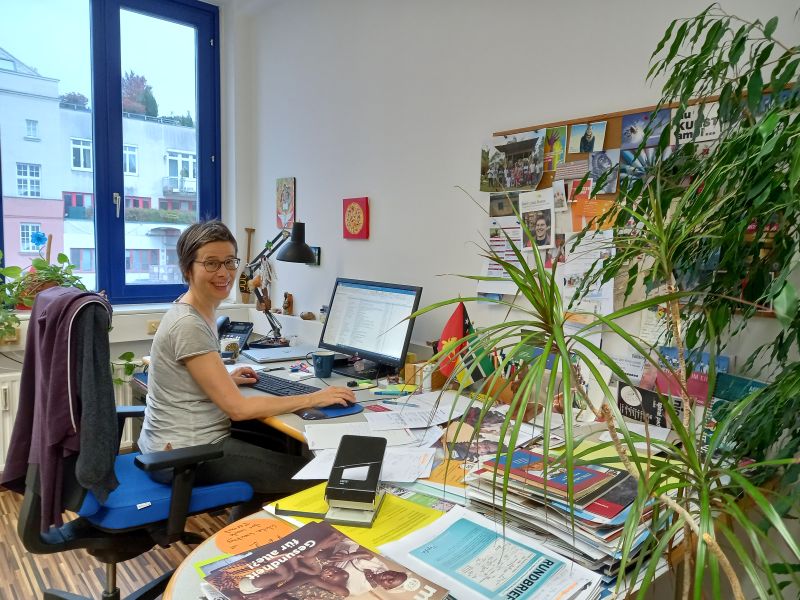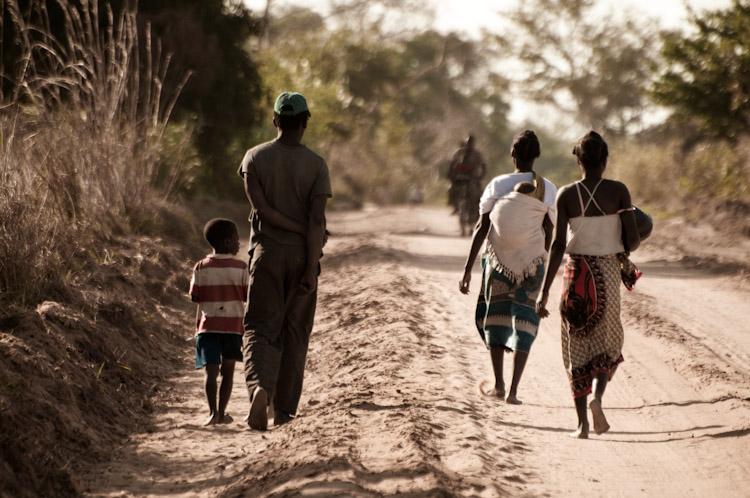Make Your Experiences Count. They Can Change the World.
LET’S BRING ALL OF OUR KNOWLEDGE AND EXPERIENCES TOGETHER.
TOGETHER WE KNOW MORE. TOGETHER WE ACHIEVE MORE. TOGETHER WE DO BETTER.
LET’S BRING ALL OF OUR KNOWLEDGE AND EXPERIENCES TOGETHER.
TOGETHER WE KNOW MORE. TOGETHER WE ACHIEVE MORE. TOGETHER WE DO BETTER.
Published: October 18, 2021
Here we go again – another round of our report special. This time, Elisabeth Moder, Programme Coorindator of Mozambique and Sector Coordinator of Human Rights and Civil Society, shares her point of view on the reports 2020 with us. We talked about suprises, lessons learned and highlights that came along with the report process.

How would you describe the reporting process in general?
Our report processes are rather complex I would say, since there are the TA Programme reports, the reports for the ADA framework, the countries and the sectors. So, our reports have to be drafted from different perspectives. And because it is a rather complex process, usually we are a bit behind in schedule. Very often people hand in their reports late, since we all work under some time pressure. Consequently, I also hand in the report late, as I have to sum up several reports coming from other people and mold them into one.
In my case we are speaking about the sector report and the country programme report, both for the TA Programme and the projects. As for the TA Programme, quite often, some reports are missing, other ones are assigned to the wrong sector etc. Moreover, the report formats are not always adequate for summarizing, which was the case last year regarding the chapter for knowledge management.
So, before I can even get to the content part of the reports, things have to be clarified, coordinated, adapted and adjusted. Once all of that is taken care of, I can get to the content and sum up the different parts that are required by the indicators.
All in all, reports are quite interesting, since they depict the core of our work and give answers to: What happens in our partner projects and in our TA assignments? What is going on in the sector?
Where there any surprises for you this year? Did you find any unexpected results?
Actually, it’s not that easy for me to remember any surprises from 2020, since it has been a while and I feel that we are already right in the middle of planning the programmes ages ahead.
The reports of 2020, however, were quite a challenge for me – a lot of things came together: First, in my position as the programme coordinator for Papua New Guinea, I hade to close the programme and finish everything up. That also involved the last short reports that had to be reviewed and edited. On top of that, I had to create the TAP report for Mozambique and the sector report for Human Rights and Civil Society.
What does come to my mind right now though is, that due to a new report format for knowledge management, we were able to collect very few documents compared to the years before that. Only then we realized that we had adapted the format in an unpractical way. This illustrated the importance of how we ask for information. It really defines the content of our reports in the end.
That’s the reason why we have adapted the format for knowledge management again. Therefore, for the next report things should work better and more efficiently – hopefully.

What were the most important learnings and take-aways from the report?
Drafting the report for Mozambique was a great opportunity for me to get to know our Mozambique Programme better, since I took over the coordination only in January 2021. Regarding the programme interventions, once again the report highlighted that a lot of great things happen in our projects.
Our partner organisations are constantly fighting human rights violations, they support hundreds of cases per year and claim sanctions for legal offenders. In all of our project regions our partners promote gender equality and the empowerment of our target groups round the clock.
That does not only affect the respective groups in a positive way, but also the entire regions of our project partners. It raises awareness and does not leave these issues unattended, but tries to change things for the better and to put in place sanctions, where sanctions are due.
Furthermore, 2020 was a year marked by a global pandemic that is still today affecting all of our lives in different ways. Nevertheless, a lot of goals were achieved in our projects, which is a remarkable success. Global lockdowns led to an acceleration of digitalisation among our partner organisations. Many activities went from physical ones to a digital setting. In Brazil for instance, our partners only went to their collaborating communities in very urgent cases. Apart from that the collaboration, consulting and meetings took place online and via phone.
As to the next reporting period, I am already looking forward to summing up all the activities and interventions that took place this year. And I am quite happy about the fact that it will be only one country this time for me to report on (Mozambique), which I now know a lot better already.
Is there anything you want to add? Do you want to share anything else with us?
I frankly assume that the (summarized) reports don’t get read a lot, which I think is a missed opportunity, as they represent a very useful recap of everything that is happening within HORIZONT3000! That’s the reason why I’m a fan of the piktocharts created by our PR department each year. It’s an at a glance review of all of the activities that is very helpful and can also be used for meetings, visits and presentations.
It also helps to keep the big picture in mind and to look beyond our own projects.